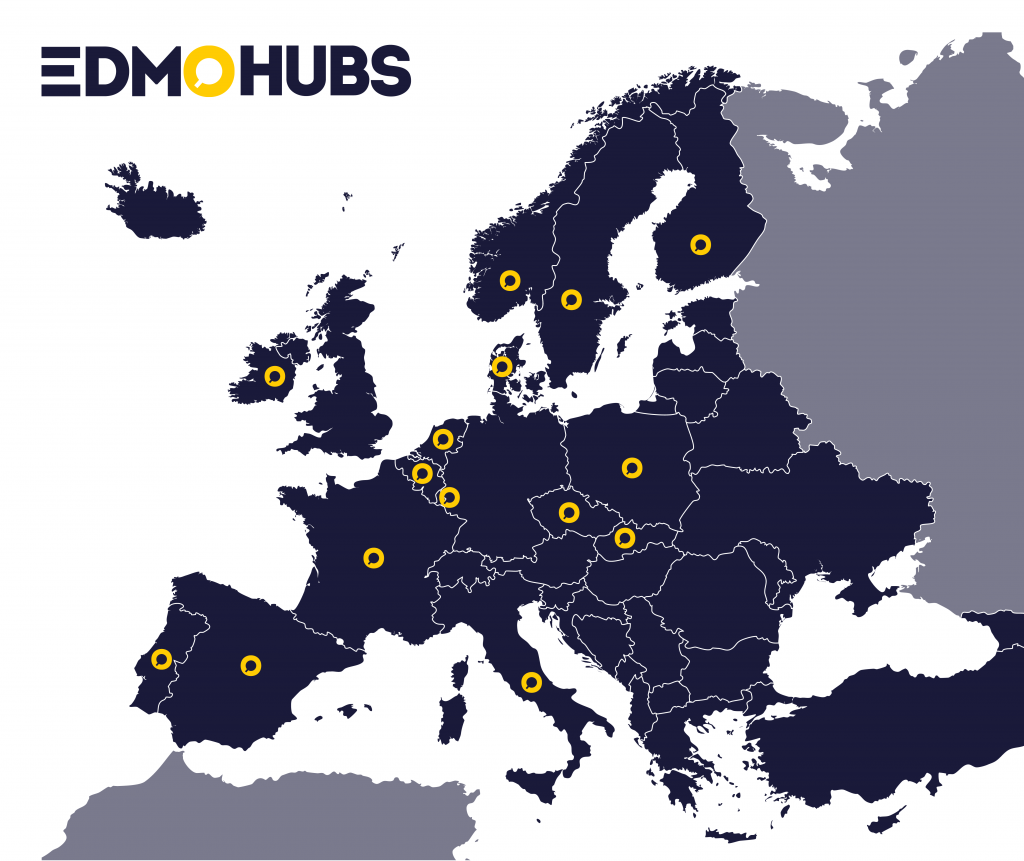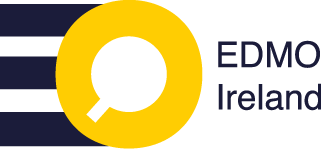About
What is EDMO?
In 2020, the European Union created the European Digital Media Observatory (EDMO) to
- promote scientific knowledge on online disinformation,
- advance the development of fact-checking services,
- support media literacy programmes, and
- support public authorities in assessing the implementation of the EU Code of Practice on Disinformation.
EDMO is based at the European University Institute in Florence, Italy. EDMO’s work is implemented by an Executive Board, which coordinates the activities of the EDMO Network.
What is the EDMO Network?

The EDMO Network includes 14 hubs operating across 28 countries in the EU and EEA.
Each EDMO hub is part-financed by the European Union to:
- analyse disinformation trends;
- conduct factchecks and investigations;
- develop media literacy resources; and
- assess and inform policy.

Each member of the EDMO Network works in full autonomy. However, all members are committed to the network’s guiding principles.
What is EDMO Ireland?
EDMO Ireland is coordinated by Dr Eileen Culloty at Dublin City University (DCU). The EDMO Ireland consortium has three members:
- DCU FuJo: DCU FuJo is a research centre that investigates responses to the digital transformation of media, democracy, and society.
- TheJournal FactCheck: TheJournal’s FactCheck unit was established in 2016 and, since 2017, is the only verified Irish signatory of the International Fact-Checking Network (IFCN) Code of Principles.
- NewsWhip: NewsWhip is an award-winning platform for real-time media monitoring and analysis.
In the first phase of funding (2021-2024), the University of Sheffield was also a member. The University of Sheffield NLP Group is one of the largest and most successful research groups in text mining and language processing in the EU.
